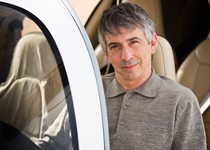 Regular piston engine oil changes are a waste of money—why not just top it off occasionally? And adding all the way to the fill line is crazy, right? Checking your tires? Way over-rated! The manufacturers just put those treads in so the tire wears out faster. As for eye-balling the fuel in your tanks? Waste of time, what are fuel gauges for? Yes, I am trying to be ironic; these are all patently wacky, why would any pilot risk his life or those of his passengers without taking care and attention of their flying machine? But what about the men (and women) who fly them? Consider some preventative maintenance you can do on yourself.
Regular piston engine oil changes are a waste of money—why not just top it off occasionally? And adding all the way to the fill line is crazy, right? Checking your tires? Way over-rated! The manufacturers just put those treads in so the tire wears out faster. As for eye-balling the fuel in your tanks? Waste of time, what are fuel gauges for? Yes, I am trying to be ironic; these are all patently wacky, why would any pilot risk his life or those of his passengers without taking care and attention of their flying machine? But what about the men (and women) who fly them? Consider some preventative maintenance you can do on yourself.
1. Fuel: You wouldn’t put any old gas in your tanks, so treat your bodily temple with similar respect. Is there anything you are eating that could compromise your health or ability to fly safely and well? Are caffeinated beverages affecting your mood? Are you carrying too much baggage in your fuselage? Obesity and diabetes will kill a non-instrument-rated pilot with more efficiency than unintentional flight into IMC.
2. Medications: Always check the AOPA medication database and speak to your AME prior to taking any new medication. Also be aware that there are many over-the-counter vitamin or food supplements that promise to “improve” the health of any bodily system. Just be aware that such non-FDA-approved products have not undergone stringent safety and efficacy testing of approved drugs. I am not saying they do not work, I am just advising caution. However, if a company really believed that its wonder pill could fulfill the promise why would they not invest in such trials? Yes, they are expensive (very expensive) but the rewards would be huge. Consider what prophylactic medications might be right for you such as low-dose aspirin or a cholesterol-lowering drug.
3. Spot check: Ever felt the urge to stand naked in front of a mirror checking out your body? No? Try it one day and then every month do it again. Look for any spots or discolorations that may have changed. Perhaps hold a ruler next to the spot (take your mind out the gutter please) and take a selfie so that you can compare the photo month to month. You are looking for any changes that might indicate skin cancer and if you see something, get thee to a doctor pronto!
4. Pipes: I have mentioned this before and will keep doing so until no one dies of embarrassment any more. If you are over age 50 or have a family history of colon cancer, blood in your stool or changed bowel habit, have a colonoscopy. It is simple and is not hideous as you will be fast asleep during the procedure. This simple test finds polyps before they become cancers and they can easily be taken out.
5. Numbers: Land on the numbers and know your numbers—blood pressure, blood lipids, and routine blood tests.
6. Family history: Learn what killed or medically troubled your parents, grandparents, and other close relatives as this could inform your physician about what screening tests to perform. For instance, a history of certain cancers might inspire them to do a BRCA test.
7. Rhythm section: Consider having a heart scan or other screening test for coronary artery disease. Each time I mention this I get some hate mail from medical colleagues (I guess that means someone is reading my articles), but it raises a good point—discuss all of this with your personal doctor who is best able to advise you.
8. Fatigue: Metal fatigue can cause big problems in your wings; mental fatigue can cause big problems in life and bone fatigue, or osteoporosis can put a dent in your day. And hip. If you are older, have smoked, have a family history, take certain medications such as steroids, consider a simple bone density scan. If positive, take the prescribed medication and learn about fracture prevention.
9. Sensors: Look after your ears by wearing defenders or ear plugs at the airport and noise-cancelling headsets in the cockpit. Wear sunglasses and have your ears and eyes checked annually, prior to your medical.
10. Get smart: Knowledge is power. Take control of your life. It is, after all, your life. And get engaged with AOPA for the debate about medical certification and other topics. As an Englishman, I saw the freedom to fly eroded as the aviation community failed to act. Let’s not allow the same thing to happen here. AOPA
Email [email protected]
Dr. Jonathan sackier is a medical professional offering support to members under the Pilot Protection Services plan.



